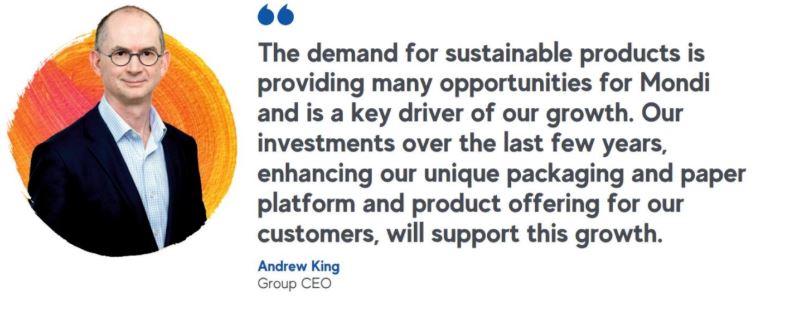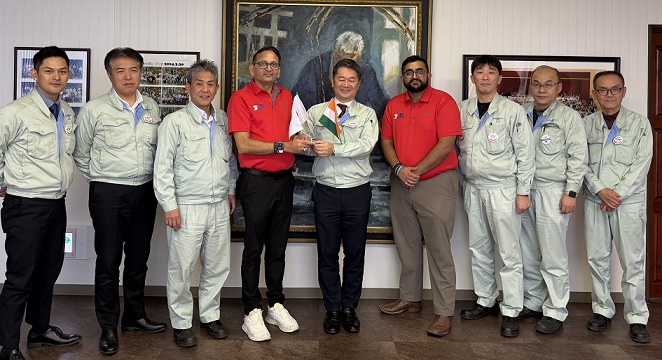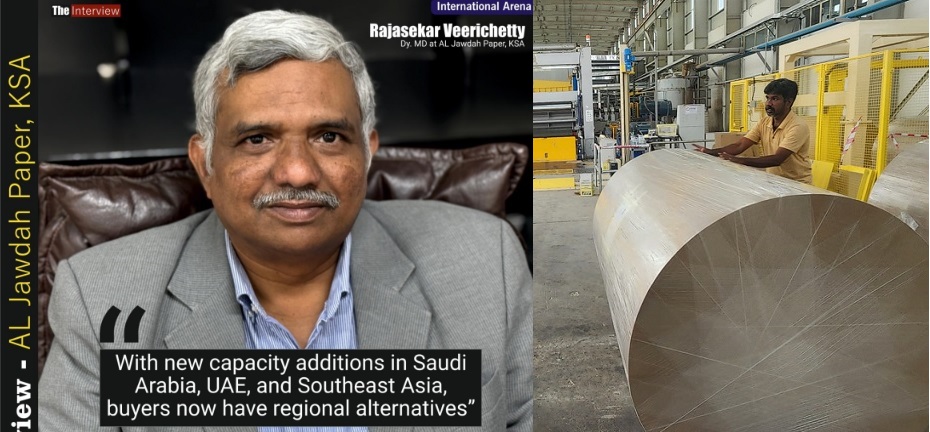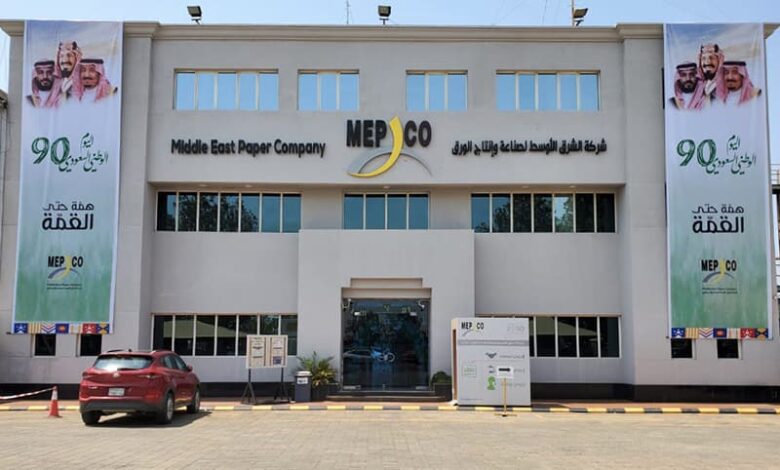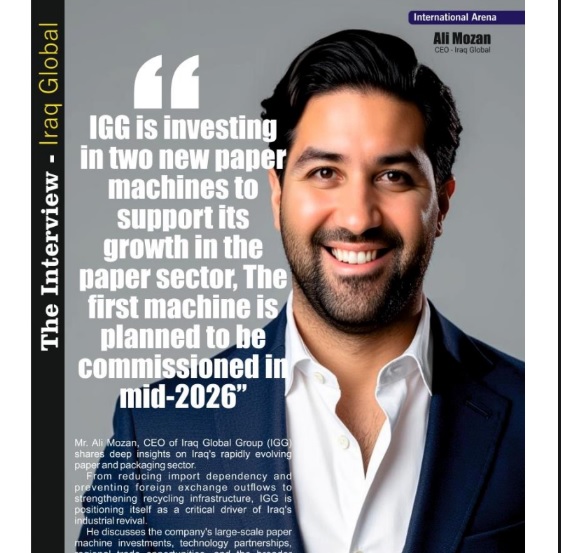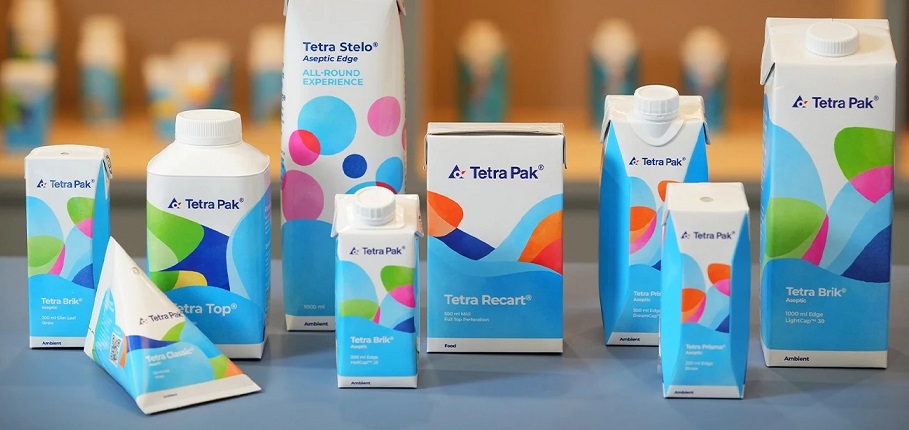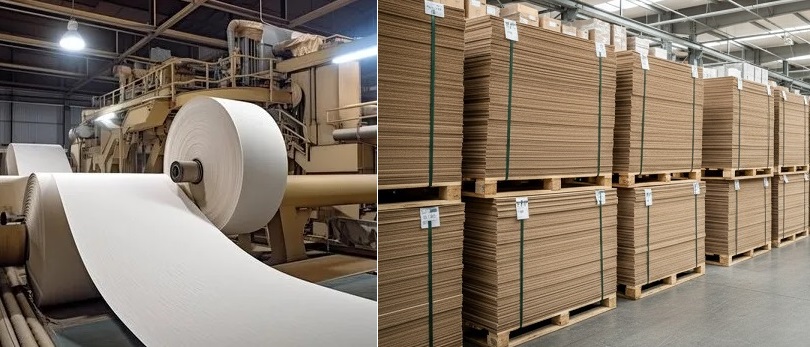UPM: Delivering performance and positioning for the future, becoming a leading supplier of eucalyptus pulp
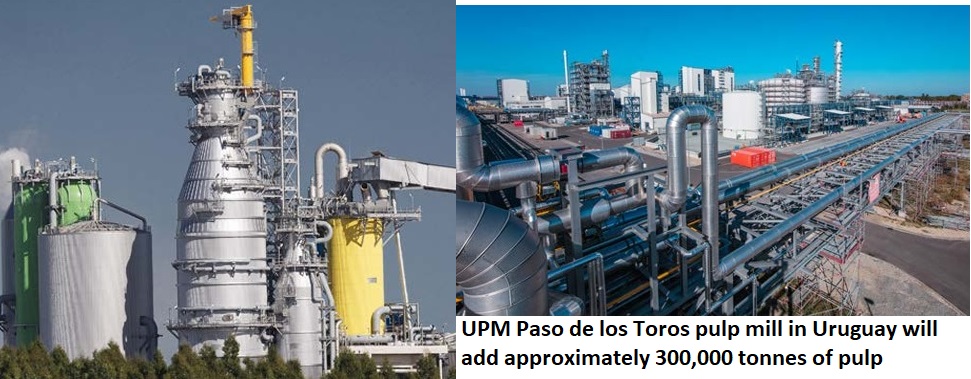
UPM: Delivering performance and positioning for the future, becoming a leading supplier of eucalyptus pulp
-UPM Leuna Biorefinery is expected to begin in the second half of 2025, and new world-class pulp mill has positioned UPM one of the world's leading suppliers of eucalyptus pulp
The Pulp and Paper Times
UPM delivered improved performance in 2024. Supported by the successful ramp-up of the UPM Paso de los Toros pulp mill and improved volumes in advanced material, we navigated a year of gradual recovery. However, the pace of market improvement slowed in the second half of the year. We implemented decisive measures to improve performance and were able to reduce fixed costs by EUR 103 million during the year.
Our comparable EBIT 2024 increased by 21% from the previous year to EUR 1,224 million, or 11.8% of sales. Our operating cash flow and financial position remained solid.
From transformation to growth
UPM has transformed into a material solutions company, with leading global market positions in several businesses. In 2024, nearly three quarters of the company's sales came from our product range in renewable fibres, advanced materials and decarbonisation solutions. Geographically, already 46% of our sales originated from outside Europe.
Today, we are well-positioned to seek value-enhancing growth in renewable fibres, advanced materials and decarbonisation solutions, serving customers in growing product segments and faster growing geographies. In the mature communication papers business, we continue to focus on strong cash flow generation.
Creating value in an uncertain operating environment
We enter 2025 with a broad portfolio of attractive businesses and valuable assets. To enhance the value of the company in the current uncertain operating environment, we are acting on three fronts: accelerating growth in targeted areas, improving overall performance and considering opportunities in our business portfolio.
In renewable fibres, 2025 will be the first year of full production at the UPM Paso de los Toros pulp mill in Uruguay. This will add approximately 300,000 tonnes of pulp production and unlock further potential in our highly competitive Uruguayan platform. We continue to optimise the Uruguayan business platform to drive down costs, and plan for debottlenecking opportunities at the mills to further increase production in the medium term.
In Finland, the wood market remained structurally tight, keeping wood costs high. In the second half of the year, we implemented a streamlined operating model that optimises the profitability of our Finnish fibres platform. As a result, we have been able to operate our well-maintained pulp mills profitably despite high wood costs and low pulp prices.
In advanced materials, we aim to grow in the attractive labelling materials, specialty paper and flexible packaging markets, and faster growing geographies. The recent acquisitions of Metamark, Grafityp and AMC have given us a significant position in the fast-growing, high-value-added graphic solutions business. Both UPM Raflatac and UPM Specialty Papers are sharpening their competitiveness by reducing fixed costs, streamlining the product portfolio and optimising production. With these measures, we aim for the businesses to improve margins and accelerate growth.
UPM Leuna Biorefinery
In decarbonisation solutions, 2025 will be an exciting year as we launch the new business in UPM Biochemicals. The UPM Leuna Biorefinery has initiated the sequential start-up, and the integrated commercial production of the site is expected to begin in the second half of 2025. Commercial interest in our products and side streams has been confirmed with customer agreements and we are managing a sales and product qualification pipeline that is multiple times the annual capacity. This allows us to optimise the product mix.
Finally, shaping the business portfolio is an ongoing strategic process. This analysis is especially important in times of uncertainty and major shifts in the global operating environment. In UPM Fibres, we have built a very strong platform in Uruguay, which we can leverage for growth. In UPM Raflatac, we decided to build a strong position in the attractive graphics business through acquisitions.
In biofuels, we decided to take two years to thoroughly validate and test the business case before taking the next larger growth steps. At the same time, we look forward to a successful launch of the biochemicals business and using the learnings for next steps. We exited the biocomposites business and plan to exit the biomedicals business to focus our development work.
UPM Biochemicals offers innovative, sustainable and competitive wood-based biochemicals to replace fossil-based raw materials and improve environmental performance in various applications. Our products are uniquely positioned to decarbonise the raw material supply of our customers and major global brand owners. The biorefinery will create new market opportunities for UPM with significant growth potential.
The biorefinery will convert solid wood into next-generation biochemicals: bio-monoethylene glycol (BioMEG) and Renewable Functional Fillers (RFF). The biorefinery will also produce bio-monopropylene glycol (BioMPG) and industrial sugars. End-use segments for renewable glycols include textiles, PET bottles, packaging, coolants, composites, pharmaceuticals, cosmetics and detergents. Lignin-based Renewable Functional Fillers (RFF) provide a sustainable alternative to carbon black and precipitated silica in a wide range of rubber and plastic applications.
The combination of wood from sustainably managed forests, a unique technology concept, integration into the existing infrastructure at Leuna and proximity to customers will ensure the competitiveness of the operation.
The commissioning and start-up was initiated in late 2024 and good progress has been made in most units. However, in the quality assurance checks, certain corrective works. required in the sugars-to-chemicals process were identified. These works have been arranged and will take a few months. Mean- while, the sequential start-up in the other units continues. The integrated commercial production of the site is expected to start in H2 2025.
The biorefinery is expected to reach full production and positive EBIT in 2027.
All teams, business processes and systems are operational, we have secured the required materials to start and run the refinery as well as the infrastructure and capacity to ship our products.
Commercial interest in the products and side-streams has been confirmed with cus- tomer contracts. We are managing a sales and customer qualification pipeline multiple times the annual capacity. Commercial activities continued to proceed positively in various product and application areas. For example, commercial partnerships for both UPM BioPuraTM renewable bio-monoethylene glycols and UPM BioMotionTM Renewable Functional Fillers products were successfully launched.
UPM Biochemicals has established partnerships with companies such as Nokian Tyres, Södra and Bormioli Pharma to develop innovative products using its bio- chemicals. These partnerships demonstrate the potential for sustainable alternatives in various industries, including automotive and pharmaceutical packaging.
UPM Paso de los Toros Pulp mill
The new world-class pulp mill has significantly increased UPM's earnings and share- holder value by increasing pulp capacity by more than 50%. This has positioned us as one of the world's leading suppliers of eucalyptus pulp.
The positive long-term outlook for pulp demand is driven by global megatrends such as urbanisation, population growth and the need for renewable materials. With the new capacity and stronger global customer reach, we are well positioned to capture opportunities of growing end-use markets competitively.
The mill complies with strict Uruguayan environmental regulations and international standards. Our extensive environmental monitoring programme covers water and biota, air, soil, noise, and socioeconomic aspects.
The UPM Paso de los Toros mill features state-of-the-art design, high automation, and premium-quality pulp production. It generates a surplus of about 1 TWh of renewable wood-based electricity annually, contributing to Uruguay's energy balance.
UPM's eucalyptus plantations in Uru- guay provide a renewable raw material base, secured through owned and leased plantations and wood sourcing agreements with private land owners. These plantations act as significant carbon sinks and neither compete with food production nor affect natural forests.
Web Title: UPM: Delivering performance and positioning for the future, becoming a leading supplier of eucalyptus pulp




 Join WhatsApp Group
Join WhatsApp Group Join Telegram Channel
Join Telegram Channel Join YouTube Channel
Join YouTube Channel Join Job Channel (View | Submit Jobs)
Join Job Channel (View | Submit Jobs) Join Buy Sell Channel (Free to Submit)
Join Buy Sell Channel (Free to Submit) Paper News Headlines Channel (Free to read)
Paper News Headlines Channel (Free to read)






